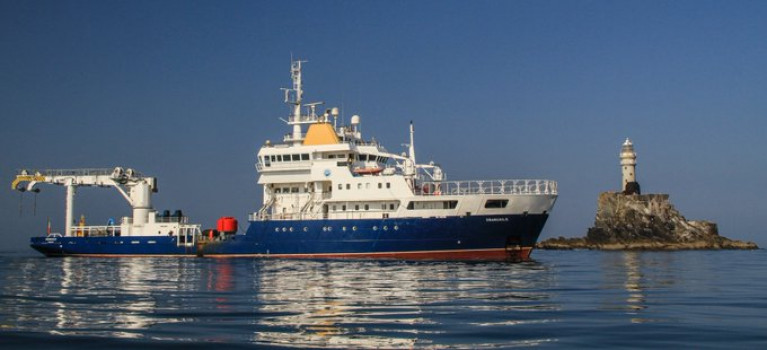Displaying items by tag: Operations
New Manager Appointed at Stena Line Operations in Belfast Harbour
Darren Byers has been appointed Port Manager at Stena Line based in Belfast Harbour.
With over 20 years’ experience within Maritime operations, Darren joins the ferry and port operator from the Royal National Lifeboat Institution (RNLI) where he was Area Life Saving Manager covering Ireland and the Isle of Man. This year is notably significant, as the RNLI is to celebrate its 200th birthday on 4th March.
An experienced operations manager, Darren, from Bangor Co. Down, will manage the safe, efficient and effective operations in the Belfast terminals and support the success of Stena Line in Belfast Harbour.
He will support Duty Managers and lead the teams in the day-to-day functions at the Port.
The ferry operator has three routes serving Belfast Harbour, connecting Cairnryan, Scotland and Birkenhead (Liverpool) in addition the freight-only service to Heysham also in England.
The Commissioners of Irish Lights continues to provide essential services to maritime trade for Ireland, north and south during the Covid-19 crisis.
In an update yesterday on operational activity, Irish Lights announced that their ILV Granuaile and coastal teams provide important maintenance for marine aids to navigation, vital for the safe movement of food, fuel, medical, hygiene and other supplies.
Our 24-hour emergency number remains open as always in the event of a need to report an aid to navigation that is not functioning correctly – +353 (1) 2801996.
In line with government advice in relation to a range of public health and safety measures to delay the spread of the COVID-19 virus, Irish Lights has put in place working arrangements to protect our employees and to keep them safe, while at the same time continuing to allow us to deliver our essential safety at sea services.
The Irish Lights facility in Dun Laoghaire Harbour is open on a restricted-access basis. The office and buoy yard remains accessible for essential operational requirements, and will continue to support the work of Irish Lights around the coast and at sea. Deliveries will be accepted, please phone ahead to reception at 01 271 5400 in advance.
Business operations continue with the majority of our employees working from home. They can be contacted as normal by email or phone.
Essential maintenance and outage response work continues around the coast, and revised health and safety measures have been put in place for the protection of employees working in coastal locations. ILV Granuaile operations and essential buoy maintenance work, outage response, and wreck response continue. Extra precautions are being undertaken to ensure optimal health and safety standards on the vessel.
Requirements are being reviewed on an ongoing basis, please see CIL's website or Twitter for further updates.





























































